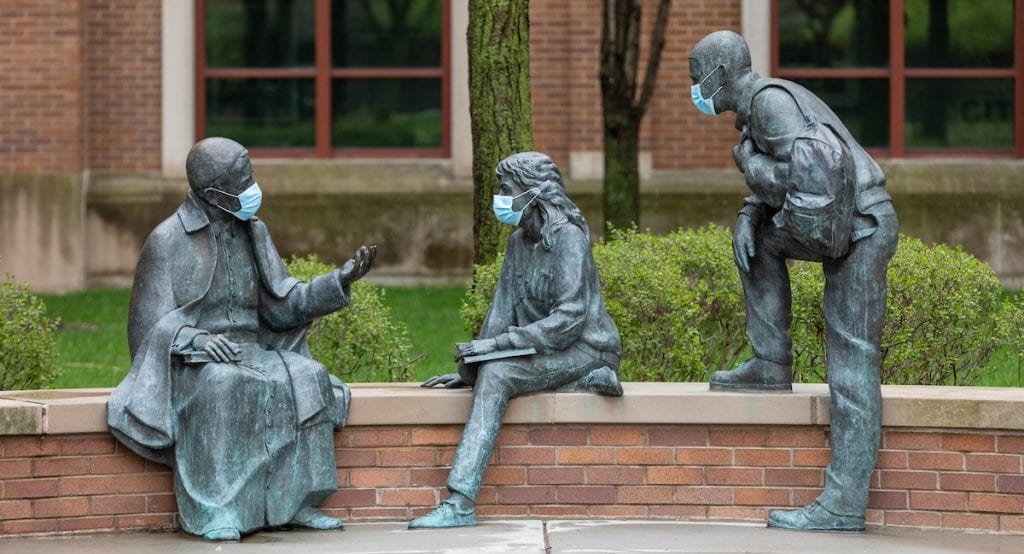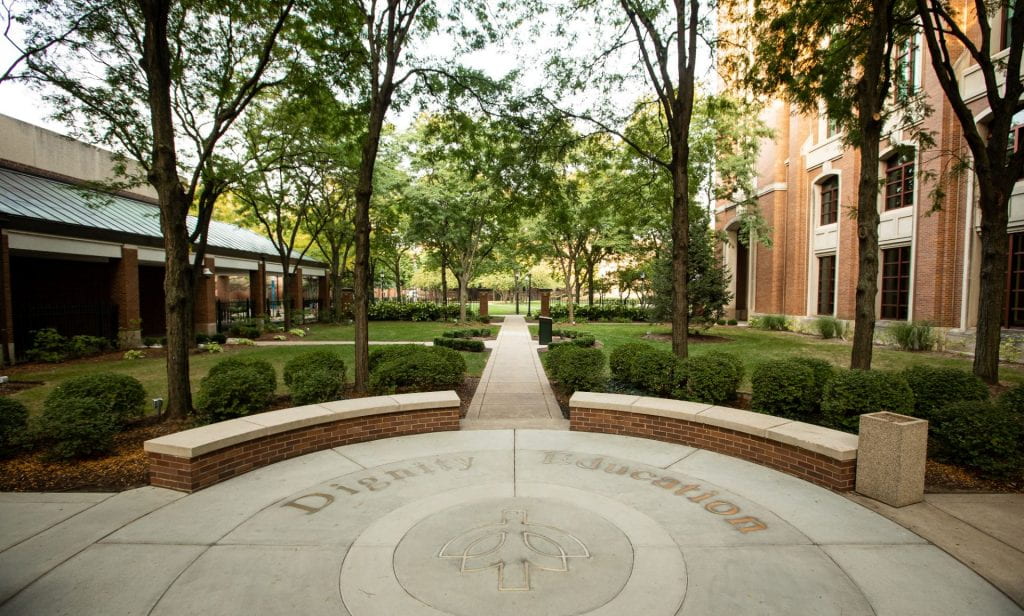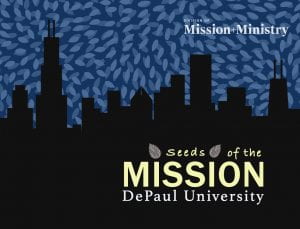
Almost exactly one year ago, I left Chicago for Iowa. I was planning to be gone for just a few days and never guessed my stay there would last a full 12 months. Feelings of isolation and despondency, familiar to many during this pandemic, had been growing in me since the spring of 2020. More and more, life was restricted to my cozy, lonely one-bedroom apartment. But, at my mother’s home in Iowa there was space, and I could work. I felt cared for, grounded, safe, and welcomed. Looking back, I knew then as I do today how fortunate I was to have that lifeline.
Now, one calendar year later, I have returned to Chicago and to my same cozy apartment. I am grateful for the support I received, humbled by the events the world has been through, and cautiously optimistic about the new school year. I have also re-learned something powerful: human beings need to feel safe, grounded, and cared for to flourish. We need community and we need to feel welcomed in the spaces that are our homes and workplaces.
I believe this life lesson is one that Vincent de Paul and Louise de Marillac knew well. In her voluminous correspondence we see that Louise was constantly encouraging her community members to live and work together in “great union and cordiality.”[1] In an updated version of the original Constitutions written by Vincent for the Congregation of the Mission, Vincentians are called to live and work in communities “animated by love…supporting one another especially in difficulties.”[2] Finally, DePaul University’s own Mission Statement reminds us that “Guided by an ethic of Vincentian personalism and professionalism, DePaul compassionately upholds the dignity of all members of its diverse, multi-faith, and inclusive community.”[3]
What, then, should this key component of Vincentian spirit look like at DePaul during this most pressing moment in time? Together how can we help to make all members of our community—students, staff, and faculty—feel safe, grounded, and cared for so that we are all able to flourish? A few thoughts come to mind.
People’s health and well-being must continue to be our top priority. In all our endeavors we need to be flexible and responsive to this commitment. Vincent de Paul once said “love is inventive to infinity,”[4] and the challenge to be lovingly creative in what we do is more necessary than ever. Also, we must work together in a spirit of collaboration and mutual support. This requires very deliberate listening, effective communication, and receptiveness to new ideas, especially by those in positions of authority over others. It must be practiced by teachers and students, supervisors and supervisees, leadership and community members. Finally, everyone—especially our students, but including our staff and faculty—must feel truly welcomed and secure, while provided with the necessary support and resources to flourish at DePaul.
The task ahead will not be easy; it is one thing to say these things but another to bring them to life. However, I reaffirm my faith in the talent and integrity of the DePaul community, and believe that our university mission and values will help us navigate whatever challenges lay in front of us. I am hopeful and prayerful that the great work we have committed to do will bring out the best in what we all give.
Questions for Reflection:
In your role at DePaul, how might you listen more intentionally, act more caringly, and lead more creatively to contribute to an environment where all may flourish?
What do you need in your life right now so that you may flourish?
[1] Spiritual Testament, Spiritual Writings of Louise de Marillac, 835. At: https://via.library.depaul.edu/ldm/
[2] Constitutions and Statutes of the Congregation of the Mission (1984, English trans. 1989), 17. At: https://via.library.depaul.edu/cm_construles/23/
[3] See: DePaul University Mission Statement 2021
[4] Conference 102, Exhortation to a Dying Brother, 1645, CCD, 11:131.
Reflection by:
Tom Judge, Chaplain/Assistant Director
Faculty and Staff Engagement
Division of Mission and Ministry


